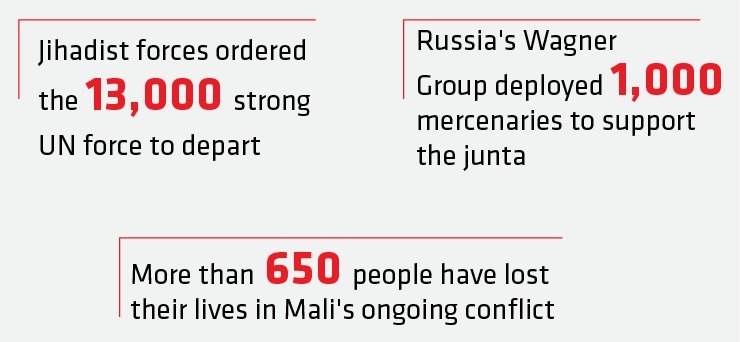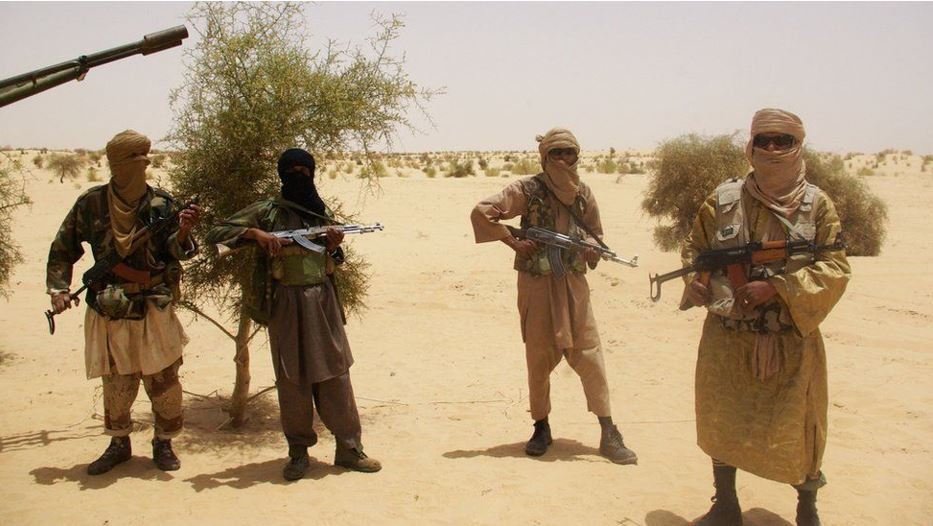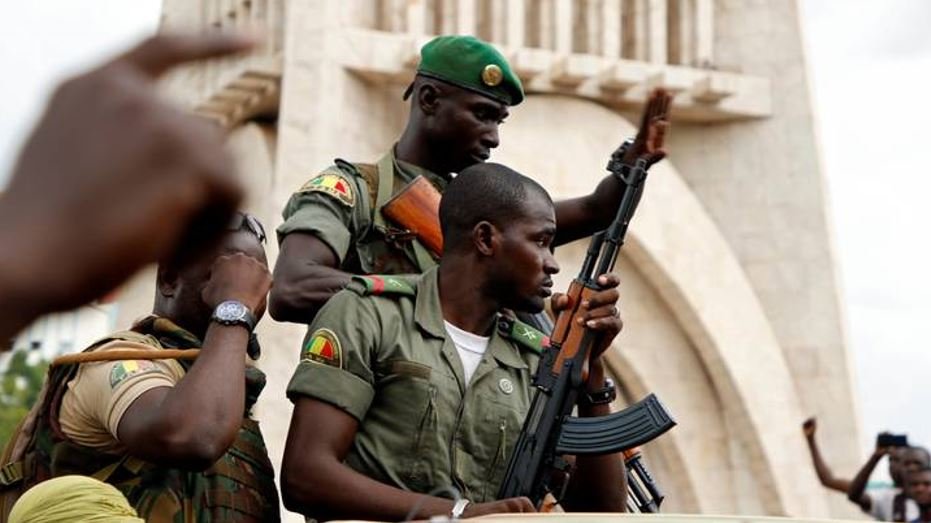The withdrawal of U.N. forces and the reluctance of international intervention have left Mali at the mercy of Islamist militants and ethnic conflicts
In 2012, French forces and the U.N. intervened to halt the jihadist advance in Mali. However, such intervention is unlikely at this time. The military rulers of Mali, who consolidated their power through coups in 2020 and 2021, severed ties with former colonial power France and expelled its troops. In Islamist militants in Mali initiated a blockade of Timbuktu in August, first by cutting off road access and subsequently by closing river and air routes. This offensive has once again placed the city at the forefront of a jihadist insurgency. The bombing campaign commenced shortly after. Witnesses reported that on September 21, rockets struck a hospital, resulting in the tragic deaths of two children. Additionally, rockets landed near a school where survivors of a passenger boat attack, which claimed the lives of over 100 individuals, had sought shelter.
Sory Toure, a local businessman in Timbuktu, expressed his concern about the ongoing shelling, emphasizing the profound psychological impact it has and the lasting fear it instills within him. Since the United Nations initiated the downsizing of its peacekeeping mission in July, al-Qaida-affiliated militants have launched an offensive in central Mali. This has led to renewed clashes between the army and Tuareg rebels from the north. In the eastern part of the country, insurgents aligned with the Islamic State continue to carry out attacks.
Mali, currently governed by a junta that has rejected support from U.N. and French forces, is experiencing a state of collapse. The escalating violence threatens to exacerbate instability in the broader West African Sahel region, which is already grappling with military coups in neighboring Burkina Faso and Niger. Experts draw parallels between Mali’s current situation and its circumstances in 2012 when a Tuareg rebellion was overtaken by jihadist forces, resulting in the capture of Timbuktu and an advance towards the capital, Bamako, June, they ordered the 13,000-strong U.N. force to depart.

Efforts by Russia’s Wagner Group, which deployed 1,000 mercenaries to support the junta, have failed to fill the resulting void and have been accused of perpetrating attacks against civilians.

According to the U.S.-based Armed Conflict Location & Event Data Project, more than 650 people have lost their lives in Mali’s ongoing conflict in the two months following the initiation of the U.N. withdrawal, marking a more than 40% increase compared to the previous two months. In a recent statement, the Malian army acknowledged that September had been a “turbulent” month but reaffirmed its commitment to continue fighting against its adversaries to safeguard the nation and its citizens.
Insufficient troops
In 2013, French forces successfully repelled Islamist insurgents. However, these insurgents regrouped and initiated a new offensive, resulting in the deaths of thousands and the displacement of millions in Mali, Burkina Faso, and Niger, a cluster of nations located on the Sahara’s periphery. Insurgents have also established a presence in West African coastal states, including Benin, Togo, and Ivory Coast. This instability has given rise to coup d’états, with their leaders distancing themselves from both regional and Western powers. Just last week, France announced its decision to withdraw its troops from Niger, leaving domestic armies to grapple with the situation independently.

In Mali, hostilities commenced in August between the national army and an ethnic Tuareg faction known as the Coordination of Azawad Movements (CMA), near a base previously occupied by U.N. forces. Since then, the CMA has launched attacks on other Malian army installations, some of which are hundreds of miles apart.
The CMA had laid down its arms in 2015 following a U.N.-brokered agreement, alleging that the army had encroached upon its territory. The CMA characterizes these times as “wartime,” while the military labels CMA fighters as “terrorists.”
The Al Qaida-affiliated group Jama’at Nusrat al-Islam wa al-Muslimin (JNIM) has conducted raids on military bases, attacked airports, fired upon passenger boats, and initiated a blockade of Timbuktu.
“The issue in Mali is the shortage of troops and limited mobility,” explained Michael Shurkin, the Director of Global Programs at the consultancy firm 14 North Strategies. He added, “JNIM and CMA have unrestricted movement throughout the entire region.”
Although there is no evidence of direct coordination between these groups, security experts suggest that they maintain certain connections. Iyad Ag-Ghali, the leader of JNIM, is a former Tuareg rebel. “They have access to each other’s contact information. This doesn’t imply they are acting in unison, but it facilitates communication,” noted Shurkin.
Awful to worse
Timbuktu, a historical hub of Islamic education for centuries, finds itself besieged today. The blockade of essential supplies has led to a significant spike in prices. Reports from city traders indicate that sugar has surged by 25%, while charcoal for cooking, potatoes, and onions have seen a staggering 30% increase. Due to the threat of falling rockets, residents are avoiding the markets, and a nightly curfew has emptied the streets.
Market trader Mohamed Massaya lamented, “The situation is deteriorating rapidly. Our business has ground to a halt, and we are relying on our existing stock.”
Following a JNIM attack on September 7th, which targeted the “Timbuktu” ferry carrying soldiers and residents from Gao, hundreds of survivors were transported to the city. Ferry services were subsequently suspended.
Salah Maiga, a member of Mali’s National Transitional Council, Mali’s equivalent of a national assembly under the junta, informed Reuters that the attack claimed the lives of 111 people, contrary to the initial figure of 64 reported by authorities.
Survivors are grappling with the aftermath of the tragedy. Aicha Sababou, who was on the boat, expressed, “It’s impossible to convey the horror we witnessed. Witnessing the deaths of dozens of people and participating in their collective burial is haunting. Despite lingering wounds, we are relieved to be reunited with our families.”
Conclusion
Mali’s descent into chaos and violence is a deeply troubling development with far-reaching consequences for the entire Sahel region. The withdrawal of U.N. forces and the reluctance of international intervention have left Mali at the mercy of Islamist militants and ethnic conflicts. As the crisis deepens, the world watches in anticipation, hoping for a resolution to avert the looming disaster in Mali.


